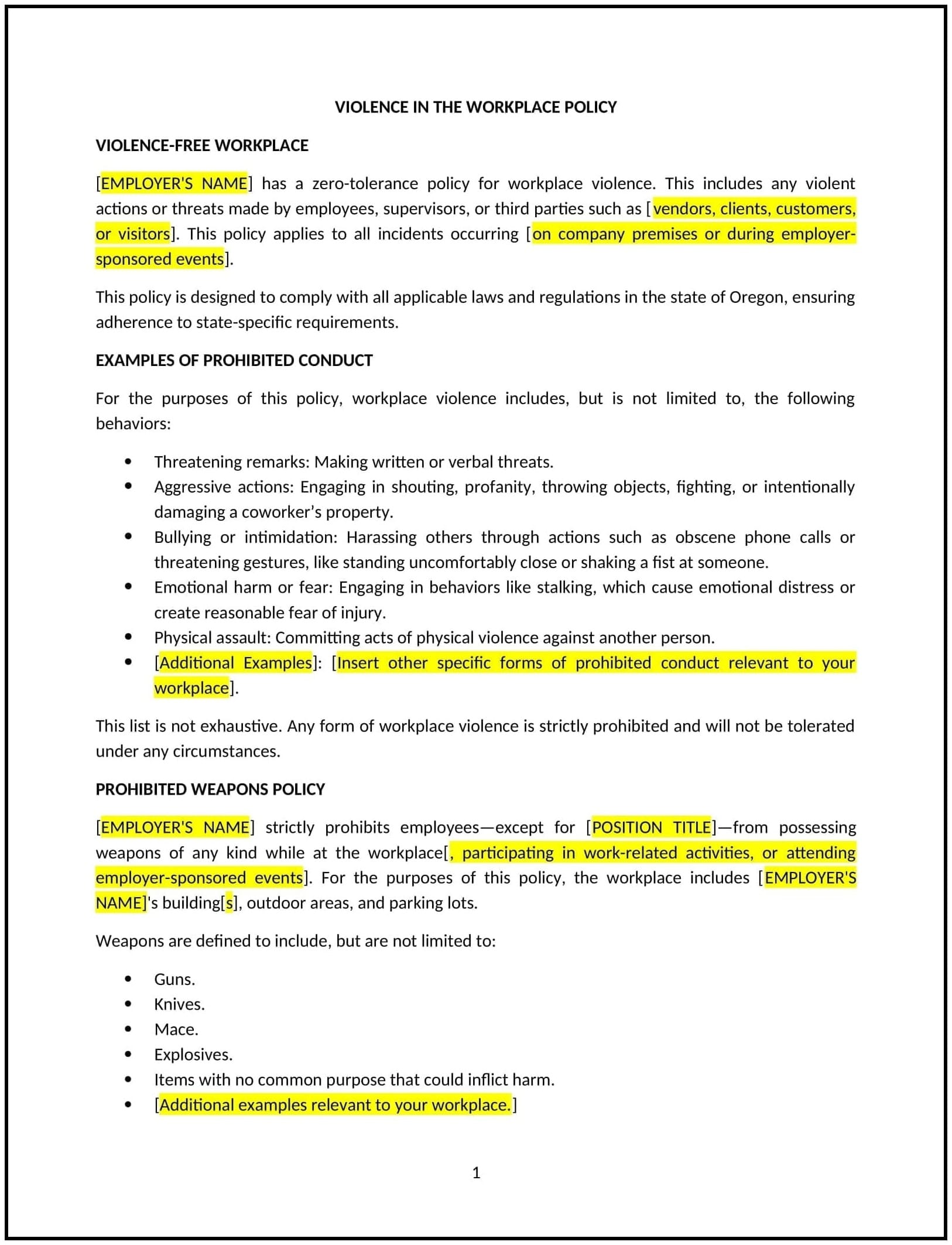Violence in the workplace policy (Oregon): Free template
Got contracts to review? While you're here for policies, let Cobrief make contract review effortless—start your free review now.

Customize this template for free
Violence in the workplace policy (Oregon)
This violence in the workplace policy is designed to help Oregon businesses create a safe and secure work environment by addressing behaviors that threaten employee safety or well-being. The policy outlines prohibited behaviors, reporting procedures, and preventive measures to mitigate risks.
By implementing this policy, businesses can foster a safe workplace, reduce risks, and ensure clear protocols for handling incidents of violence.
How to use this violence in the workplace policy (Oregon)
- Define prohibited behaviors: Clearly outline what constitutes workplace violence, including physical aggression, verbal threats, harassment, or intimidation.
- Establish reporting protocols: Specify how employees should report incidents of workplace violence, including contact details for HR or designated personnel.
- Provide preventive measures: Include steps such as employee training, workplace security assessments, and conflict resolution strategies.
- Address response procedures: Detail how the business will respond to incidents, including investigations, disciplinary actions, or external reporting.
- Emphasize confidentiality: Ensure that all reports and investigations are handled with discretion to protect the privacy of those involved.
- Include support resources: Provide access to employee assistance programs (EAPs) or counseling services for affected employees.
- Review regularly: Periodically assess and update the policy to reflect changes in Oregon laws or workplace needs.
Benefits of using this violence in the workplace policy (Oregon)
Implementing this policy provides several advantages for Oregon businesses:
- Promotes safety: Reduces the risk of violence through proactive measures and clear reporting protocols.
- Fosters trust: Employees feel more secure knowing the business prioritizes their safety and well-being.
- Ensures preparedness: Provides a structured response to handle incidents effectively and minimize disruptions.
- Protects legal interests: Reduces liability risks by demonstrating a commitment to a safe workplace.
- Reflects Oregon-specific practices: Tailoring the policy to local laws and industry standards ensures its relevance and effectiveness.
Tips for using this violence in the workplace policy (Oregon)
- Train employees: Offer regular training on recognizing and responding to potential violence or threats in the workplace.
- Maintain open communication: Encourage employees to report concerns or incidents without fear of retaliation.
- Conduct risk assessments: Periodically evaluate workplace security and address vulnerabilities.
- Collaborate with law enforcement: Establish relationships with local authorities for prompt assistance if needed.
- Monitor policy effectiveness: Use feedback and incident data to improve and refine the policy over time.